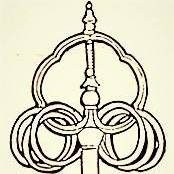
If one presents the teachings clearly, others benefit. But if someone is supposed to propagate the Dharma and their behavior is harmful, it is our responsibility to criticize this with a good motivation. This is constructive criticism, and you do not need to feel uncomfortable doing it.
In “The Twenty Verses on the Bodhisattvas’ Vows,” it says that there is no fault in whatever action you engage in with pure motivation. Buddhist teachers who abuse sex, power, money, alcohol, or drugs, and who, when faced with legitimate complaints from their own students, do not correct their behavior, should be criticized openly and by name.
This may embarrass them and cause them to regret and stop their abusive behavior.Exposing the negative allows space for the positive side to increase. When publicizing such misconduct, it should be made clear that such teachers have disregarded the Buddha’s advice. However, when making public the ethical misconduct of a Buddhist teacher, it is only fair to mention their good qualities as well.
The Dalai Lama,
Dharamsala, India March 1993
